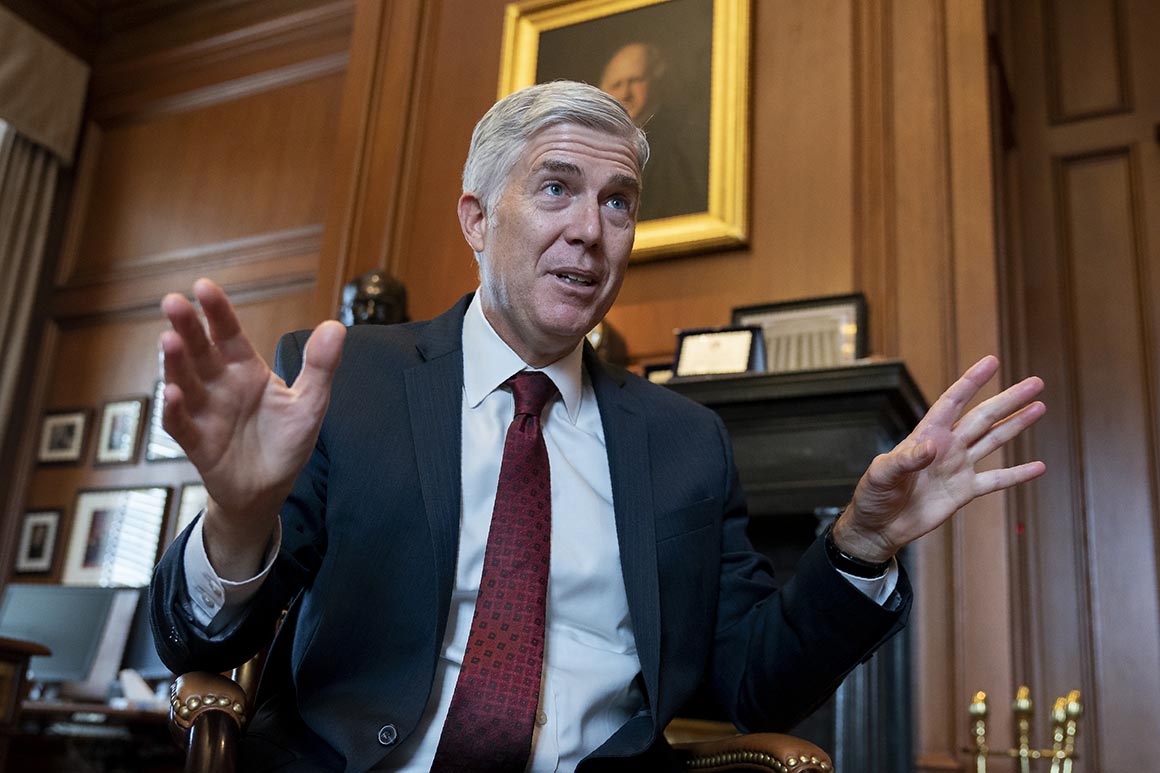
But many conservatives in the Republican coalition were furious about Gorsuch’s opinion, which came just two days after Rep. Denver Riggleman (R-Va.) lost his renomination bid in part because he presided over a same-sex wedding.
Carrie Severino, president of the conservative legal advocacy group Judicial Crisis Network, said that “Justice Scalia would be disappointed that his successor has bungled textualism so badly today for the sake of appealing to college campuses and editorial boards.” The group spent millions to confirm Gorsuch and block the appointment of Merrick Garland in 2016.
Sen. Ted Cruz (R-Texas) echoed her remarks.
“This judicial rewriting of our laws short-circuited the legislative process and the authority of the electorate,” he said. “Six un-elected and unaccountable judges instead took it upon themselves to act as legislators, and that undermines our democratic process.”
And the president of the evangelical activist group Family Research Council, Tony Perkins, said the court’s effort “to rewrite the Civil Rights Act to add gender identity and sexual orientation as protected classes poses a grave threat to religious liberty.” Sean Davis, a writer for the Federalist, said conservatives need to „start picking individuals who will vote correctly.”
But that’s not how most Senate Republicans see it. They not only defended Gorsuch but also said justices shouldn’t be expected to automatically rule one way or the other.
While most Democrats dismissed Gorsuch’s claims of judicial independence during his 2017 confirmation, Republicans said his leadership on the LGBTQ issue confirms that Gorsuch is his own judge.
“It demonstrated Gorsuch’s independence,” Senate Majority Whip John Thune said. “The country’s obviously changed a lot on that issue. And I assume that he looked at the facts and the law and that’s the conclusion he came to. And that’s what, when we nominated him and confirmed him, we wanted him to.”
Even those that disagreed with the court’s decision took far more issue with the process than the substance. Sen. Mitt Romney (R-Utah) said no one should lose their job on the basis of sexual orientation but that he wished the “decision would have been reached by Congress rather than the court.”
“The court is legislating what they think is good policy. And that, to me though, that’s really not their role. I mean I don’t particularly care about their views on policy,” said Sen. Josh Hawley (R-Mo.), a former Supreme Court clerk. “The right answer is ‘over to Congress’ to do something about it.”
Still, the Supreme Court thrusting difficult issues on Congress isn’t always successful either. In 2013, the Supreme Court struck down key parts of the Voting Rights Act, asking Congress to write a new law if lawmakers believed voting rights were still an issue. Congress has not addressed it.
Just like the court’s same-sex marriage decision in 2015, the decision on gay and transgender rights could be the last word on an issue that the federal legislature has avoided. And the finality of the Supreme Court’s view relieved the handful of longtime GOP proponents of ending discrimination of LGBTQ people via legislation.
“It may change some of the dynamics around here,” Sen. Rob Portman (R-Ohio) said. “Now there’s a Supreme Court case [with] the Civil Rights Act applying to some of the discrimination on the basis of sexual orientation. So it’s a big deal.”
Andrew Desiderio contributed to this report.
Source: politico.com
See more here: news365.stream






